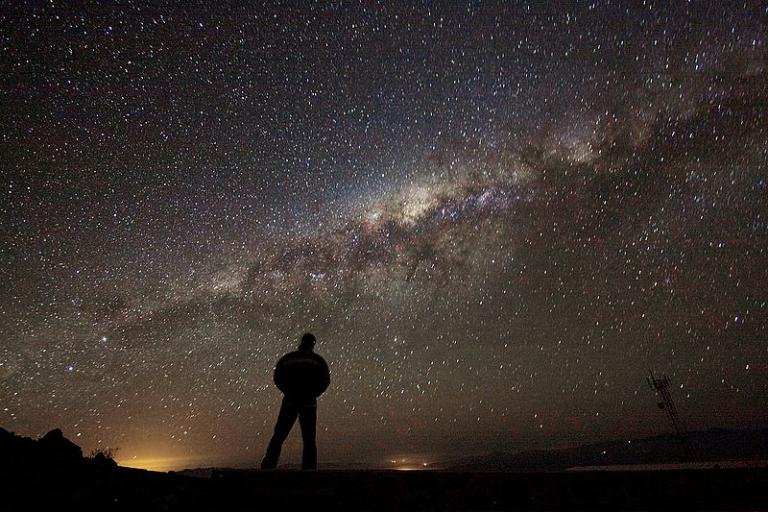
The third and final part of my reply to an implicit challenge served up by an online critic of Mormonism and of theism who advocates an especially sweeping and unreflective scientism. Here’s what he wrote:
You won’t find even one instance where science has had to say it was wrong, and someones sacred scriptures from antiquity got it right. Not. one. time. not. one. item.
Here are some quotations from the late Robert Jastrow (1925-2008), a religiously agnostic NASA astronomer and planetary physicist:
In an interview with Christianity Today, Jastrow said,
Astronomers now find they have painted themselves into a corner because they have proven, by their own methods, that the world began abruptly in an act of creation to which you can trace the seeds of every star, every planet, every living thing in this cosmos and on the earth. And they have found that all this happened as a product of forces they cannot hope to discover. That there are what I or anyone would call supernatural forces at work is now, I think, a scientifically proven fact.
From Robert Jastrow, The Enchanted Loom:
Now we see how the astronomical evidence supports the Biblical view of the origin of the world. The details differ, but the essential elements in the astronomical and Biblical accounts of Genesis are the same: the chain of events leading to man commenced suddenly and sharply at a definite moment in time, in a flash of light and energy.
There is a strange ring of feeling and emotion in these reactions [of scientists to evidence that the universe had a sudden beginning]. They come from the heart whereas you would expect the judgments to come from the brain. Why? I think part of the answer is that scientists cannot bear the thought of a natural phenomenon which cannot be explained, even with unlimited time and money. There is a kind of religion in science; it is the religion of a person who believes there is order and harmony in the Universe. Every event can be explained in a rational way as the product of some previous event; every effect must have its cause, there is no First Cause. … This religious faith of the scientist is violated by the discovery that the world had a beginning under conditions in which the known laws of physics are not valid, and as a product of forces or circumstances we cannot discover. When that happens, the scientist has lost control. If he really examined the implications, he would be traumatized.
Consider the enormity of the problem. Science has proved that the universe exploded into being at a certain moment. It asks: What cause produced this effect? Who or what put the matter or energy into the universe? And science cannot answer these questions, because, according to the astronomers, in the first moments of its existence the Universe was compressed to an extraordinary degree, and consumed by the heat of a fire beyond human imagination. The shock of that instant must have destroyed every particle of evidence that could have yielded a clue to the cause of the great explosion.
From Robert Jastrow, God and the Astronomers:
For the scientist who has lived by his faith in the power of reason, the story ends like a bad dream. He has scaled the mountain of ignorance; he is about to conquer the highest peak; as he pulls himself over the final rock, he is greeted by a band of theologians who have been sitting there for centuries.












